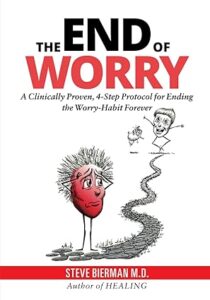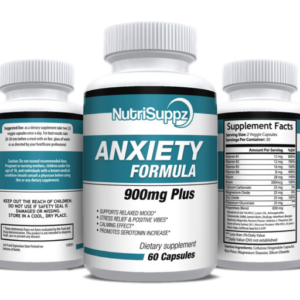27 Aug Reduce Stress and Anxiety: Practical Strategies for a Calmer Mind
Reduce Stress and Anxiety: Practical Strategies for a Calmer Mind

Introduction:
In today’s fast-paced world, stress and anxiety have become common challenges that many people face daily. Whether it’s work-related pressures, personal life struggles, or the uncertainty of the future, these feelings can take a toll on our mental and physical health. The good news is that there are effective ways to reduce stress and anxiety. In this article, we’ll explore practical strategies that can help you regain control and lead a calmer, more balanced life.
1. Practice Mindfulness and Meditation
Mindfulness and meditation are powerful tools for managing stress and anxiety. These practices involve focusing on the present moment, which can help you break free from the cycle of worrying about the past or the future. Here’s how you can incorporate them into your daily routine:
Start Small: Begin with just a few minutes of mindfulness or meditation each day. Focus on your breathing, noticing the sensations in your body, or observing your thoughts without judgment.
Use Guided Meditations: If you’re new to meditation, guided sessions can be helpful. There are plenty of apps and online resources available that can lead you through the process.
Incorporate Mindfulness into Daily Activities: Practice mindfulness during everyday activities like eating, walking, or even washing dishes. Pay attention to the details of the experience, staying fully engaged in the present moment.
2. Stay Active with Regular Exercise
Physical activity is one of the most effective ways to combat stress and anxiety. Exercise releases endorphins, the body’s natural stress relievers, and improves overall mood. Here’s how to make exercise a part of your routine:
Choose Activities You Enjoy: Whether it’s walking, running, swimming, or yoga, find an activity that you love so you’re more likely to stick with it.
Set Realistic Goals: Start with small, achievable goals, such as a 20-minute walk each day, and gradually increase the intensity and duration as you build your fitness level.
Incorporate Movement into Your Day: Even if you’re busy, find ways to move throughout the day. Take the stairs instead of the elevator, stretch during breaks, or do a quick workout at home.
3. Prioritize Sleep for Mental and Physical Health
Sleep is crucial for managing stress and anxiety. When we’re sleep-deprived, our ability to handle stress diminishes, and our anxiety levels can increase. Here are some tips for improving sleep quality:
Establish a Bedtime Routine: Create a relaxing routine before bed, such as reading, taking a warm bath, or practicing gentle yoga. This signals to your body that it’s time to wind down.
Limit Screen Time Before Bed: The blue light from screens can interfere with your sleep. Try to avoid using phones, tablets, or computers at least an hour before bedtime.
Create a Sleep-Friendly Environment: Make your bedroom a calm and comfortable space. Keep it cool, dark, and quiet, and invest in a good mattress and pillows.
4. Connect with Others and Build Support Networks
Social support is essential for managing stress and anxiety. Connecting with friends, family, or support groups can provide comfort, reassurance, and a sense of belonging. Here’s how to build and maintain strong connections:
Reach Out to Loved Ones: Don’t hesitate to talk to someone you trust when you’re feeling overwhelmed. Sometimes, simply sharing your feelings can alleviate stress.
Join a Support Group: Consider joining a group where you can share your experiences and learn from others who are going through similar challenges.
Volunteer or Get Involved in Your Community: Helping others can provide a sense of purpose and reduce feelings of isolation. Plus, it’s a great way to meet new people.
5. Practice Deep Breathing and Relaxation Techniques
Deep breathing exercises and other relaxation techniques can quickly reduce stress and anxiety. These methods are simple, effective, and can be done anywhere. Here’s how to incorporate them into your routine:
Try Deep Breathing Exercises: Practice deep breathing by inhaling slowly through your nose, holding your breath for a few seconds, and then exhaling slowly through your mouth. Repeat this several times to calm your nervous system.
Explore Progressive Muscle Relaxation: This technique involves tensing and then slowly relaxing each muscle group in your body, starting from your toes and working your way up.
Use Aromatherapy: Essential oils like lavender, chamomile, and eucalyptus can have a calming effect. Use them in a diffuser, add a few drops to your bath, or apply them to your pulse points.
6. Limit Caffeine and Sugar Intake
While it’s tempting to reach for a cup of coffee or a sugary snack when you’re feeling stressed, too much caffeine and sugar can actually increase anxiety and make it harder to manage stress. Consider these alternatives:
Opt for Herbal Teas: Herbal teas like chamomile or peppermint can be soothing and help reduce anxiety.
Choose Balanced Snacks: Opt for snacks that provide steady energy, like nuts, fruits, and whole grains, instead of sugary or highly processed foods.
7. Set Realistic Goals and Manage Your Time
Feeling overwhelmed by a long to-do list is a common source of stress. Learning to set realistic goals and manage your time effectively can make a big difference:
Prioritize Tasks: Focus on the most important tasks first, and break larger projects into smaller, manageable steps.
Learn to Say No: It’s okay to decline additional responsibilities if you’re feeling overwhelmed. Your mental health should come first.
Use Time Management Tools: Tools like calendars, planners, and to-do lists can help you stay organized and reduce the feeling of being overwhelmed.
Conclusion:
Reducing stress and anxiety requires a combination of strategies that address both your mind and body. By incorporating these practical tips into your daily routine, you can create a calmer, more balanced life. Remember, it’s important to be patient with yourself as you make these changes. Small, consistent steps can lead to significant improvements in your mental well-being over time.
Reduce Stress and Anxiety: Practical Strategies for a Calmer Mind






No Comments